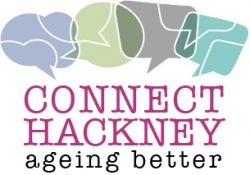Top tips for delivering digital skills learning via the telephone:
Helping older people to go online during lockdown
By Fiona Baird and Michael Tiritas, Newham New Deal Partnership
The challenge of working within social distancing requirements
Newham New Deal Partnership has been delivering digital learning to older Hackney residents since 2018 via the Connect Hackney programme. Like many projects, our delivery model – creating a group social environment in which to deliver learning for digital skills – relied on face to face communication with users, and needed to adapt to social distancing requirements.
Many older people have been self-isolating, and/or wary of attending group activities, and most indoor community venues have been closed to ‘non-essential’ events.
During and after lockdown, we have offered a telephone advice line to new and past @online club members in Hackney so that they can continue to go online. We have reviewed our face to face learning mode, and, having piloted a remote version of our @online course with telephone support from ‘digital buddies’, we will be offering our first ‘remote’ @online club course in Hackney in January 2021, loaning tablet devices for use in participants’ own homes where required.
Who are the users of telephone learning and support?
As we write, social distancing requirements continue under tier 2 regulations in London, and we may not see a return to face to face learning activities for many weeks. We know that many older people are looking forward to a resumption face to face activities, but in the meantime, telephone support is a way to engage with older residents who are least able to connect digitally for online support and learning.
Users of the service are older people who do not have confidence in going online themselves to solve digital technical or practical problems.
They may be recent users of digital technology, and have a technical problem with an existing or newly purchased device (smart phone or tablet), but do not have a family member of friend who is able to provide them with practical assistance.
Or they may be older people who feel that now is the time to learn how to go online, or go online more regularly in order to engage more with family, social and faith networks, or to make essential transactions online, such as benefits registration, or engaging with council or health workers.
Top tips for delivering digital skills learning by telephone
Older people are comfortable with telephone communications, but providing technical support and skills learning by telephone presents challenges for both tutors and learners. Patience is an essential requirement for everybody concerned!
Top 10 tips for staff and volunteers:
1. Focus and listen. Having fewer visual clues mean it’s easy to miss when someone’s become confused, so listen closely, and let there be pauses.
2. Take. It. Slowly. It can take longer for someone to learn virtually compared with face to face, so reassure the client that they should take their time and not rush. Accuracy is more important than speed!
3. Talk your user’s language. If it’s a ‘pointer’ rather than a cursor or a ‘button’ rather than a computer key, then that is fine.
4. Try and use the same browser/device as the learner so you can see what they see.
5. Break the task down into distinct steps. It will help you and your learner feel like you’re making progress.
6. Make sure clients, who find downloading and accessing attachments difficult, have printed ‘how to’ course notes in advance, or if it is an advice line call, follow up with a printed hand out.
7. Give your client time to write stuff down.
8. Don’t try to do too much. The average adult attention span is 15-20 minutes. Take a break. Have a chat.
9. Allow time to sit back and let your learner practise on their own. It will help them remember what you’ve said.
10. Pause a little and listen to their fears. What aspects of digital technology can help ease their personal concerns?
Top five tips for users:
1. Take/make that phone call in a comfortable place, at a quiet time in your day, with no or low background noise, so that you can concentrate.
2. Make sure you are ready to take additional notes as it helps memory and understanding.
3. Tell your tutor how you like to learn so that s/he can adapt their approach to your needs
4. If you don’t understand anything or have any problems hearing what is being said, let the tutor know!
5. Practice how you did something for a second time, after the telephone session – to embed the memory.
For more information on @online club Hackney, Tel: 0203 383 0111.

